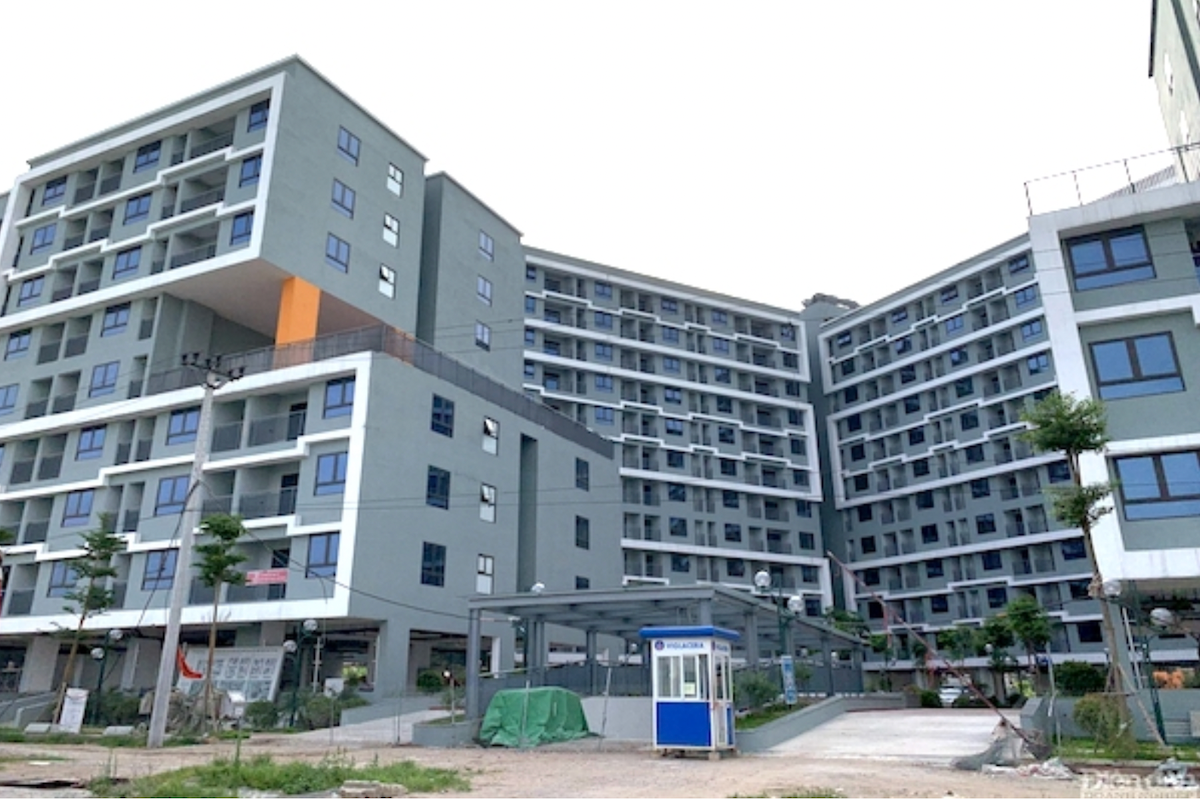A "Launchpad" for Social Housing
Expectations are high for the social housing sector as it enters 2025 since many large-scale projects are being planned for implementation by provinces, cities.

Since 2021, 644 social housing projects have been launched nationwide.
Race to Develop Social Housing
According to a Ministry of Construction data, 108 projects totaling 47,532 social housing units were finished nationally in 2024. According to local registration statistics, 135 projects totaling around 101,900 units are anticipated to be constructed nationwide by 2025.
In Ho Chi Minh City alone, 21 enterprises have registered to build 52,000 social housing units on self-developed land, along with 8,000 units from seven investment-invited land plots and 10,000 units from public investment sources. The city aims to achieve 70,000 social housing units by 2030, while also streamlining administrative procedures and establishing land reserves for this housing segment's development.
In the meantime, 11 social housing projects in Hanoi are anticipated to be completed this year, with a combined total of around 6,000 units (or 345,000 square meters of floor space). In addition, the city intends to create 57,200 units through 50 additional projects during the following five years.
A 100 trillion VND package derived from government bonds has been suggested by the Ministry of Construction to increase funding for the construction of social housing.
Not just in major cities, other localities are also announcing plans to develop housing for low-income residents. In Đồng Nai, for example, 8,800 units will begin construction this year. Similarly, Bình Dương continues to implement 26,552 social housing units and offers tax and fee incentives for businesses involved in this segment. Additionally, Đà Nẵng, Khánh Hòa, and Cà Mau are also planning to build thousands of social housing units over the next five years.
Additional Incentives
The Chairman of Hoang Quan Group, Mr. Trương Anh Tuấn, claims that a number of government incentives would make the social housing market more vibrant in 2025. Social housing developers , for instance, are not required to calculate land values or finish the processes for land use fee exemptions, and thus are not subject to land rent or use taxes. Additionally, they gain from increased purchasing eligibility, flexible processes for allocating the 20% land fund set aside for social housing, and incentives from the value-added tax (VAT) and corporate income tax. In addition to these incentives, cities are facilitating land allocation for developers of this sort of housing and simplifying administrative processes.

The supply of social housing is expected to significantly improve in 2025.
Discussing the market, Ms. Phạm Thị Miền, Deputy Head of the Market Research and Investment Promotion Department of the Vietnam Association of Realtors (VARS), believes that the supply of social housing will significantly improve in 2025.
“The new laws have created many bright spots for social housing investment and development. For instance, current regulations allow businesses operating in industrial zones to lease dormitories to workers for subleasing,” she said. The Housing Law 2023 not only expands the eligibility criteria for purchasing social housing but also includes provisions for additional entities to participate in project development. This regulation is expected to encourage more economic sectors to contribute to social housing development.
“In addition to a maximum profit margin of 10%, project investors can also earn additional returns from areas designated for commercial services, trade, and commercial housing—comprising 20% of the project's total development area,” the expert noted.
The Housing Law 2023 has created a strong legal framework that encourages companies to actively engage in the social housing sector, according to Dr. Cấn Văn Lực, Chief Economist of BIDV.
"The new law gives developers of social housing a lot of incentives. The first is exemption from use fees and land rent. Second, more efficient processes. Third, broadened eligibility for purchases. Fourth, there should be various ways to distribute the 20% land fund for social housing, he explained.
Additionally, a 145 trillion VND credit package from nine registered banks will not be counted toward credit growth limits, as per the State Bank’s decision. Analysts believe this regulation will give banks sufficient leeway to support social housing projects without being constrained by credit ceiling limits.








